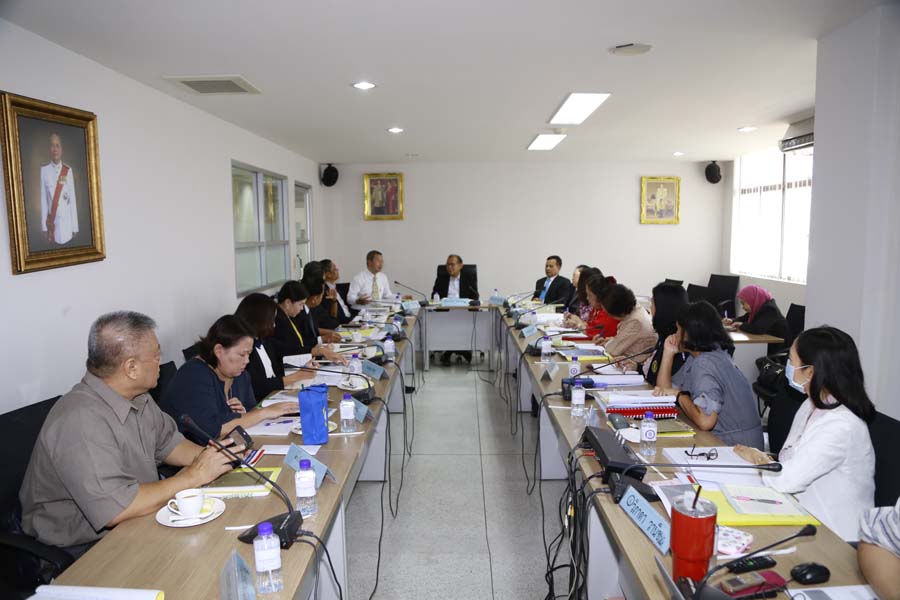OEC Forms Team for Preparing Elderly Education Standards
On March 3, 2020, Dr. Suphat Champatong, Secretary-General of the Education Council and Dr. Somsak Donprasit, Deputy Secretary-General of the Education Council attended the Meeting of the Working Team on Drafted Elderly Education Standards 1/2020 chaired by Dr. Chaiyos Imsuwan at Pote Sapianchai Meeting Room, Office of the Education Council.
Dr. Suphat Champatong said that there is a change of aging society in Thailand. In 2021, Thai will become a full-fledged aging society where the proportion of elderly people aged 60 or older is 20 percent of the total population. In 2031, Thailand will be expected to be super-aging society where the proportion of elderly people increases to 28 percent of the total population.
The challenge of the growing number of Thai elderly people is the formulation of suitable and felicitous policies and measures. The Office of the Education Council (OEC) accelerates the implementation of the elderly education policy as well as raises awareness to encourage the participation of all sectors i.e., families of the elderly, communities, and agencies concerned. The participation of the latter will promote learning of the elderly which conforms to the transitional society and prepares powerful and valuable elderly people.
As for Dr. Somsak Donprasit, Deputy Secretary-General of the Education Council, released that the National Scheme of Education 2017-2036 becomes effective for the provision of education at all levels including education for the elderly. The National Education Standards 2018 is applied as a framework for preparing Thais 4.0 focusing on outcomes of learners at all levels of education and at all ages. These Thais 4.0 are expected to be learner person, innovative co-creator, and active citizen with moral principles.
In the meeting, the participants made a brainstorm about various procedures to prepare the Elderly Education Standards as well as considered OEC’s researches concerning the elderly in Thailand and the current situation of the elderly in Thailand. At present, although both public and private agencies concerned make an effort to promote and provide learning activities for the elderly appropriate for their capacity and readiness, these actions cannot correspond to the rapid rise in the number of the elderly in each year.
OEC hastens to apply academic papers and researches concerned to prepare policy implications to be presented to the Ministry of Education and agencies concerned. In addition, OEC will establish the system of support and development in terms of budget, personnel development, body of knowledge, knowledge transfer technic, and work integration in order that the responsible agencies are able to work effectively and comprehensively for elderly education provision.
The working team of OEC plan to make site visits to conduct a case study research on good practice of the provision of elderly education in Thailand which will leads to the OEC’s Drafted Elderly Education Standards.




